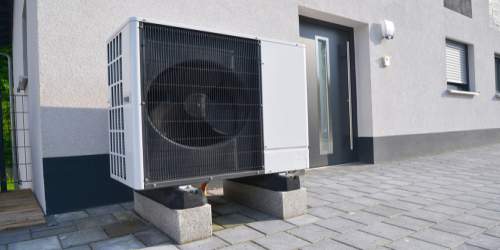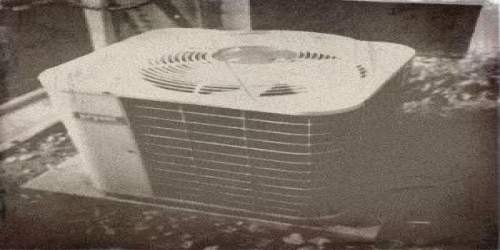Read Time : 3 Minutes
Benefits of installing a Heat Pump
What are the main benefits of heat pumps?
There are many benefits, both financial and environmental, associated with heat pump installations which are the reason heat pump systems have become very popular over the last decade or so. They can be used to heat or cool space through radiators, air convectors and under floor heating systems, and can also be used to heat water for general use in your home.
Heat Pumps provide heating and cooling.
Heat pumps can provide space heating and space cooling at the touch of a button using a wall monitor, a remote or even a phone app. This heating or cooling can be provided very quickly due to the nature of their design. When installed to the right specifications and in the correct manner they provide very effective control over room temperature, are very quick to heat or cool a space and then sustain the desired temperature.
COMPARE PRICES FROM LOCAL INSTALLERS
Compare prices from local companies fast & free
Enter your postcode to compare quotes from leading professionals. We promise to keep your information Safe & Secure. Privacy Policy
Heat Pumps have very high energy efficiency ratings.
Heat pumps are currently the most cost-effective form of heating using electricity, achieving an average COP (Coefficient of Performance) figures of 2.5 or more (sometimes in excess of 4), meaning that to achieve 2.5 kilowatts of heating or cooling power, they use an average of less than one kilowatt of electricity! To put this into perspective, a conventional heating system such as an electric fire or gas boiler generally has a COP of less than one, so more than one kilowatt of power is used to generate one kilowatt of heat power. This makes a heat pump system cheap to run and will also most likely lower your carbon footprint. Generally speaking, a heat pump system can be 200% - 400% efficient. This makes a heat pump system one of the cheapest ways to heat your property.
Heat Pumps have great financial benefits.
A heat pump will most likely save you a lot of money on your annual fuel bills due to its very high energy efficiency ratings. The initial outlay can be daunting and although they have been shown to add value to your property, it’s often a good idea to look at a theoretical pay-back-period. If you don’t see yourself staying at the property or if you are in old age, it may be more cost effective to stay with your current heating system. Do take into consideration the other benefits of a heat pump system though.
Heat Pump systems are likely to substantially lower your carbon footprint.
Due to the fact that a heat pump doesn’t directly use combustion to generate heat (heat pumps do not burn anything), there are no carbon emissions other than those created at the point of the electricity’s production and only a small amount of electricity is needed to run the compressor. This makes a heat pump an extremely eco-friendly space heating / cooling technology. Heat pumps are also more environmentally friendly than ever, as they now use R410A refrigerant which does not harm the ozone layer if released.
A heat pump will help prevent condensation.
If you decide to use your heat pump for cooling in the summer, then your room will be automatically dehumidified as a function of the heat pump. In the winter the warm air that’s circulated around your property by your heat pump will also serve to reduce condensation.
Heat pumps help improve your home’s air quality.
As heat pumps don’t burn anything to create heat, they don’t produce any smoke or add fumes to the air. As your heat pump circulates the air in your room, the filters clean and purify the air removing dust, mould spores, odours, smoke, and other particles. This makes them excellent for people that suffer from asthma and allergies.
Heat Pump Efficiencies (COP)
System efficiencies vary between installations and the parts used. Your property’s energy efficiency is also a hugely important factor to consider when calculating potential system efficiencies.
The efficiency (coefficient of performance or COP - sometimes CP) of the system itself (the ratio between the electricity invested in order to run the heat pump and the pump’s output) varies between the types of system used.
Ground source heat pumps tend to have an efficiency of between 2.5 and 3 (that is, 3 units of heat generated per unit of power needed to drive the system). Air source heat pumps can be slightly less efficient, with an average efficiency of between 1.5 and 3. However it must be noted that these figures are increasing as technologies advance, and it is likely that manufacturer’s claims on a products' COP will be very much a ‘best case scenario’.
System efficiency is dependent on other factors, however, such as the quality of the installation, the system owner’s competency in maximising the system output, and the property’s energy needs and efficiency.
Coefficient of performance (COP) Heating Equation
Financial Savings Offered by Heat Pumps
It is very difficult to calculate the precise savings offered by air and ground source heat pumps given the huge range of factors.
The savings offered by heat pumps depend on the following factors:
- Your property’s RHI eligibility (the RHI has now closed to new applicants and been replaced by the Boiler Upgrade Scheme)
- Your current heating source (oil, LPG, etc)
- Your property’s specifications and available outside space
- Its energy efficiency
- Your energy consumption
- Cost of system installation and parts, based on its size and quality
- Type of system installed (i.e. air or ground source)
The table below gives you a rough idea of the amount of money you could save by installing air or ground source heat pumps. It should be kept in mind, however that the huge number of variables involved makes an accurate projection of costs and savings difficult.
| System type |
System cost** |
Energy source being replaced |
Annual saving*** |
Break-even point |
|---|---|---|---|---|
| Air source | £8,250 | Oil | £236 | 15 years |
| Air source | £8,250 | Liquid gas | £285 | 13 years |
| Ground source | £10,750 | Oil | £200 | 17 years |
| Ground source | £10,750 | Liquid gas | £247 | 16 years |
* These figures assume that a property has loft and wall cavity insulation and double glazed windows. They assume that the property has two floors, around 90 square meters of floor area, and, in the case of ground source heat pumps, around 180 square meters of available outside space for the installation of tubing.
** These figures assumed that the property was eligible for the RHPP one-off voucher at the time. The Renewable Heat Premium Payment and the Renewable Heat Incentive are no longer available. The RHI has been replaced by the Boiler Upgrade Scheme.
NB. The figures for annual savings exclude payments received from the RHI, which have since come into effect. The annual saving/profit will be significantly higher and the break-even point lower now that the RHI scheme is running (the RHI scheme is no longer available and has been replaced by the Boiler Upgrade Scheme).
Find a local installer
Welcome to the biggest directory of UK renewable energy companies






 How does a Heat Pump Work
How does a Heat Pump Work








